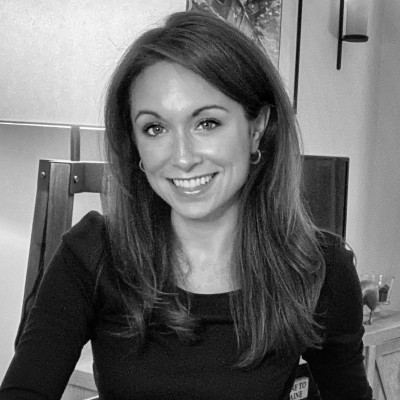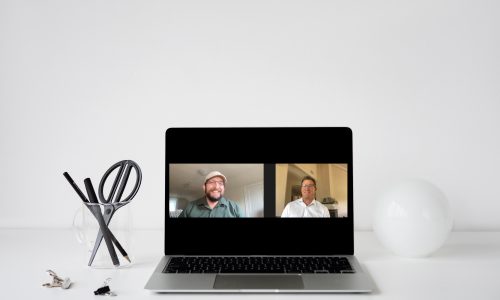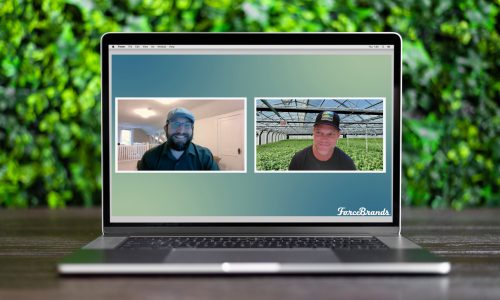For Curaleaf‘s Chief People Officer Tyneeha Rivers, cannabis is personal. A true believer in the power of the plant, she overcame insomnia after being introduced to the healing properties of cannabis.
Now, she combines her passion for the industry and experience in human resources to make Curaleaf a leading place to work in the space. In this episode of Cannabis Matters, we caught up with her to learn more about why she champions inclusivity in the workplace, what she looks for in new hires, and more.
Watch her interview with ForceBrands’ Client Strategist and series host Eric Rosen and read the transcription of the conversation below:
Eric Rosen: As they say in Hollywood, take two. Well, thanks for joining us today on Cannabis Matters. It’s a real pleasure to have you on the show.
Tyneeha Rivers: Thank you. I appreciate being here.
ER: You have 25 years of human resources experience in sports and entertainment. I’m really curious about what inspired you to transition into cannabis?
TR: I believe in the power of the plant. There was a time when I just could not sleep at all. I had suffered from insomnia for over 10 years and you know I recall a specific time when I was in the ER trying to figure out what was going on and I’ve seen so many different doctors and it was a point where I couldn’t get seven minutes of sleep and when I was introduced to cannabis, it totally transformed my life. I’m sleeping solidly now for seven and eight hours, which is a gift for those of you who have not ever had any issues with sleeping, and I just believe in the power of cannabis and there’s so much more that cannabis can do. It changes lives and I’m just excited to be a part of such an amazing company and a great industry as well.
ER: That resonates deeply with me. It’s amazing to have a personal connection with the plant and I think it makes all the difference in the world, especially when you’re in like the upper echelons of the org chart as a senior leader like you.
TR: Yeah and also just you know my goal, too, of course not just the impact we want to make internally with creating this amazing and thriving culture at Curaleaf, but also just from an external standpoint. That’s why I love to share my story because I think it’s important to change a narrative about cannabis because sometimes it’s not viewed in a good light from whatever interpretation that people may have about cannabis and when people can see that yes, senior executives like myself use it and it’s something that I’m proud of, that I take pride in, I think it just helps to continue to try to change the narrative that doesn’t look so positively on such a wonderful industry like ours.
ER: One hundred percent and we forget because we’re in the bubble. We’re in it where it’s totally normalized, but yeah normalizing it for the average person out in the world is huge. So given your professional track record, you could have gone anywhere so of all the brands in the space, why did you choose Curaleaf specifically? I can tell you that it’s so important for me to work for a company that shares the same vision, shares the same values that I do, and cares about employees. I think most of us know that our employees are pretty much the heartbeat of a company and for me, I am so excited to work for a CEO like Matt Darin who truly understands the importance of creating a good culture and like him and just my other senior executives and other executives in the company, we’re all aligned and kind of carrying that torch of having a great culture and marching in the same direction so we can create a place where employees love to work here. That’s our goal to be an employer of choice and I for the first time I’m just so excited to work for a CEO who cares just more about culture than I do and it’s great to have a great partner and having other executives, like-minded executives like myself and excited to continue on this amazing journey that we’re on.
ER: That’s incredible. There’s nothing like being surrounded by leaders that you truly respect and feel aligned with from a value standpoint. It makes all the difference in the world and it trickles downward all the way to the front lines.
TR: Couldn’t agree with you any more, exactly. One hundred percent.
ER: So taking a step back and drawing on some of the morale and turnover challenges that I think you faced when you were VP of HR for the 76ers, how are you leveraging some of those insights now when you’re thinking about looking for new key hires at Curaleaf?
TR: It’s always important to hire individuals who have the knowledge and skills that have the ability to do the job. We want to hire the best qualified candidates so that’s first and foremost, but what’s even more important is that we don’t want to hire talented jerks like that’s just not who we want to work in our organization.
I’m not sure if you’re familiar with Patrick Lencioni but he wrote a few good books that I read and always share with our teams. One is “The Ideal Team Player” and the other one is “The Five Dysfunctions of a Team” but he talks about the importance — and this is something that translates at Curaleaf — of hiring good people, hiring decent human beings who understand how to treat each other with respect, who understand how to collaborate and he talked about this theory of hiring people who were humble, hungry, and smart and those are the core things that we’re looking for when hiring people in our company.
ER: That’s fantastic and as you compare and contrast let’s say from Merrill Lynch to cannabis MSO, respect to talent and team building do you find that there are more similarities or do you find there are more differences between the world of you know wirehouses and cannabis or vice versa?
TR: Well of course I have to give a shout-out to cannabis. It’s a cool industry, right? It’s a different vibe and I love like the cannabis industry when I think about working in like the bigger Fortune 500 companies, it’s a different vibe than the cannabis industry. But in terms of those similarities in between like people, I was asked a very similar question, are you looking for a different person now in terms of the scope of the role than what you do and a lot of those things are very much transferable. So if you have the skills to do the job, it’s going to be pretty much very similar within those industries but I think what makes us special is the impact that we can make and be able to change lives. We kicked off our conversation with a talk about how I believe in the power of the plant so although there are very many similarities in between other industries that I work for, more importantly, I think it’s more I’m personally connected to our mission. I’m personally connected to our communities because I understand the impact that we’re making around us with at Curaleaf.
ER: Cannabis, while new, has really historically lacked diversity. I think this is something that we’re all aware of, we’re all working towards solving for it. How are you advancing the efforts to create a more inclusive sector and how is Curaleaf really carrying the torch on the DEI front?
TR: Yeah I can tell you that Curaleaf has made my job easier because this something that they were focused on prior to me joining Curaleaf and now I could just help kind of take us to the next level of excellence as we are in this space and one thing that we take very seriously is that we want this and we pride ourselves in creating a culture where employees can be their most authentic selves. I tell a short story that when I started off my career in those bigger companies, there was a time where I spent a lot of my time crying in the restroom because I felt like it was a place where I didn’t fit in. It was a place where I couldn’t wear my hair braided like I have it now. It was a place where I felt alone and I didn’t see a lot of people that looked like me and I wasn’t supported and it brought me to tears a lot and one of the things that I pulled from that experience I said you know one day I want to run my own HR department I’m going to assure that no one else ever feels the way that I felt crying in that restroom feeling like I didn’t fit in and that’s the opposite of the culture that we’re creating here at Curaleaf where we have our employer resource groups we’re doing a lot of things to again create this culture where no matter who you are, no matter where you come from, no matter your sexual orientation, you’re going to feel just as important like this is a company who takes you very seriously no matter what your background is and that’s the thing that we’re creating that’s special at our company at Curaleaf.
ER: That’s amazing. How is everyone from frontline workers all the way up through middle management, how are folks responding to that and either showing up when they wouldn’t have shown up at all or showing up bigger because they feel like they’ve been given permission to do so?
TR: I think in terms of how they’re showing up, I think everyone’s embracing it. They understand the importance of being an ally and how they can make a difference by even signing up to our employee resource group but even as we look forward, we have some really cool things that we’re doing in terms of having this book club — this building bridges book club where we can learn about different topics and kind of talk about them as one kind of Curaleaf community, being able to share different ideas and things that we can do to support one another, so it’s being embraced by our entire company not just by a senior leadership but it trickles down to just the hourly team member where they understand that hey this is something that’s important, it’s something that we protect and it’s something that we’re kind of ‘united we stand,’ we’re holding our hands together to support a very important initiative which again is to create this place where everyone can thrive no matter who they are, or where they come from.
ER: So if we fast forward 10 years, what’s the biggest dent in the universe that you’ve made at Curaleaf or in the cannabis industry in general and what’s the thing that you’re most proud of?
TR: We talked about turnovers that we maintain like great in terms of having a low turnover at our company, that it’s a place where you know we think about Curaleaf in general that it’s a place where our team members all feel like they feel valued, appreciated, and supported. I talked about the goals of being an employer of choice so we’ve won best places to work awards where this is a place where you hear about Curaleaf, people are knocking down the doors to come work for our organization. We continue to just grow and expand our footprint and everything that we do and we’re totally headed in that direction, we’re all marching towards that goal, but 10 years from now, we’re going to be even bigger, even better, even stronger in terms of the overall impact that we’re making internally and also externally within our communities.
ER: Coming from a place of being contribution-forward and wanting to give and help pave the way for others, whether it’s an individual whether it’s a company, what is a single piece of advice that you would give to younger cannabis companies to help them succeed and really make the industry a better and brighter place in a truly meaningful way?
TR: Don’t lose focus of what is the most important and that’s your people because of course organizations that care about those things that’s going to help them grow and expand their footprint but don’t lose sight of people. Put your focus on people because if you put your focus on people, everything else will kind of fall in line but you have to ensure that you’re creating a culture where employees not only could be their authentic selves but where they know that companies are taking the time to engage with them where they can thrive so I guess my best advice continues to be to work to create a culture where employees want to work for your organization. Don’t lose sight of that because I think sometimes we can — not just in the cannabis industry but across the globe as well.
ER: I love it. It’s like the passion is what’s going to fuel you to push through. Because this is not a normal industry. Cannabis is not like any other industry. You have to want to be here. You have to really want to be here. If you want to make money you can go to tech. I mean there are other industries that will pay more pound per pound so if you want to be here you got to have the passion and that really carries you through the interesting twists — nothing is linear, right? The twisting and windy roads that we all go through in the space.
ER: Yeah, agreed. Really appreciate you carving out time on the calendar and I wish you all the best and all the success in the world at Curaleaf and everything you do.
TR: Great. Appreciate you, Eric. Thank you.
Catch up on more episodes from Cannabis Matters here.
Interested in learning more about the cannabis industry and how ForceBrands’ cannabis practice can help grow your business or career? Reach out to Eric Rosen to start the conversation.






